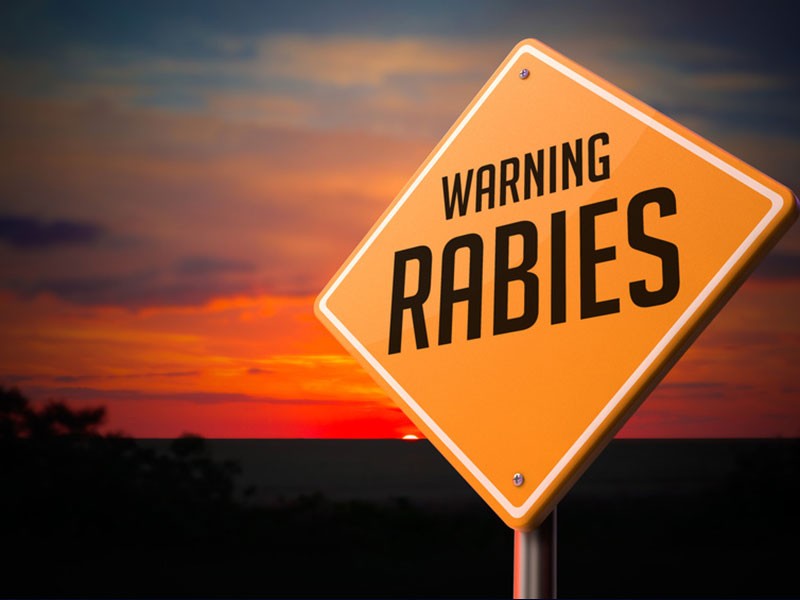As north Georgians increase their outdoor activities this season, the chance for people and pets to encounter wildlife will increase. Some of those chance meetings could involve rabid animals.
"Generally during the warmer weather, we see more people out and about, maybe hiking, out in their yards, and of course, wild animals, rabid animals tend to forage for food," District 2 Public Health Public Information Officer Dave Palmer said. "We always have that opportunity for encounters."
District officials put out a fact sheet Friday, offering information on rabies and precautions people in the region can take.
The top two tips are simple, the first being to avoid contact with wild and unfamiliar domestic animals.
"Other things we can do is if we feed our pets outside, don't leave food outside after you feed your pet," Palmer said. Pick it up. Store it indoors so that wild animals are not attracted to the property."
The other tip is stressed by local animal control agencies every time an animal tests position for rabies.
"Always make sure that your pets are vaccinated for rabies, because if they are attacked by a wild animal, (you) want to make sure that they're protected against rabies," Palmer said.
According to the health department, the occurrence of rabies among humans has declined over the years, but the disease continues among wild animals.
Rabies is a viral infection transmitted in the saliva of infected mammals. The virus enters the central nervous system of the host causing an inflammation of the brain that is almost always fatal. The most common carriers of rabies in the United States are raccoons, skunks, coyotes, foxes and bats.
Rabies is transmitted only when the virus is introduced into bite wounds, open cuts in the skin or onto mucous membranes, according to the health department.
Post-exposure rabies treatment includes a series of injections to the wound area. The treatment can be costly, however, rabies is almost always fatal without it. Post-exposure vaccine can be found at all of the major hospitals within District 2. Information about vaccine assistance programs can be obtained through local environmental health offices.
The Georgia Department of Natural Resources has regulations that prohibit the keeping of wild and wild/domestic hybrid animals as pets. Some animals identified by these regulations are raccoons, skunks, coyotes, foxes, and bats. More information is available on the DNR website.
Small rodents such as squirrels, hamsters, guinea pigs, gerbils, chipmunks, rats, mice and lagomorphs, which include rabbits and hares, are almost never found to be infected with rabies, according to the health department. The animals are considered low-risk and have not been known to transmit rabies to humans.
Public health officials become involved in animal cases where exposure or potential exposure to rabies occurs. The role of public health is to ensure that domestic animals are vaccinated against rabies and to ensure the public is educated and informed about rabies.
In many counties, public health is also responsible for collecting specimens from suspected rabid animals and coordinating testing of the specimen with the state lab. Additionally, public health officials notify individuals who have been exposed to risks and inform them of the need to seek medical care.









